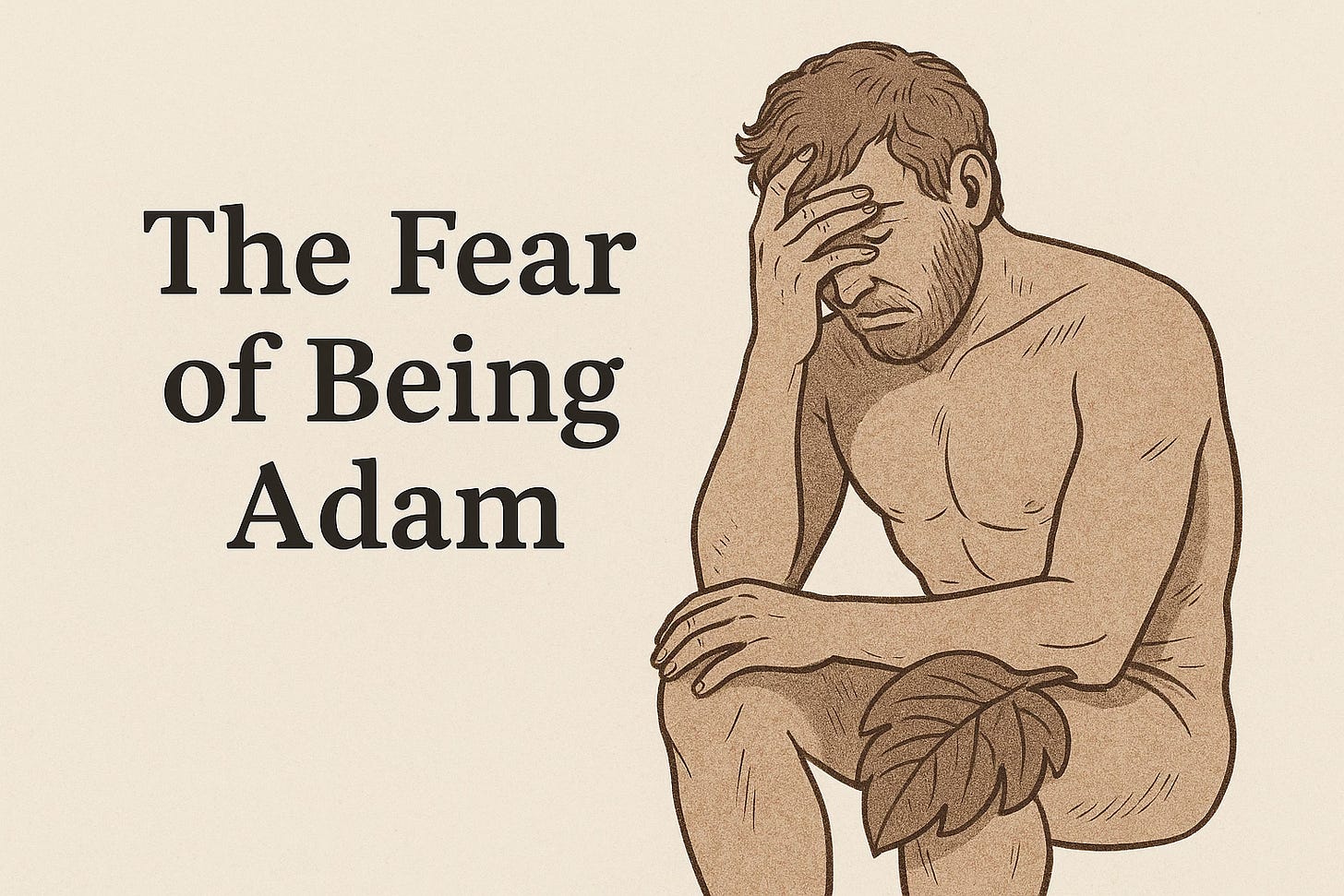What if the real problem in Eden wasn’t Eve?
What if it was Adam’s silence?
What if the first failure wasn’t rebellion—but cowardice?
And what if, instead of learning from that failure, generations of men built an entire theology around pretending it wasn’t their fault?
What If Adam Was the Real Failure?
Let’s stop pretending the story isn’t clear.
Adam was there.
He wasn’t absent. He wasn’t ambushed. He wasn’t tricked.
He stood next to Eve while the serpent spoke.
He said nothing.
He asked nothing.
He did nothing.
And then, when it was offered—he took the fruit.
No resistance. No leadership. No discernment.
Just silence.
But instead of sitting with that failure, our traditions handed the blame to Eve.
She tempted him.
She overstepped.
She led him astray.
And in doing so, the story gets rewritten—not as a shared fall, but as a cautionary tale about why women should never lead.
Adam’s silence becomes Eve’s shame.
And the emotional fragility of one man becomes a control system for centuries.
A Theology of Cowardice Disguised as Order
What would it mean to admit that the first man lacked courage?
What would it mean to acknowledge that sin entered not through action—but through the refusal to act?
If Adam had spoken…
If he had listened…
If he had trusted his partner, or challenged the lie, or asked a question…
The story would be different.
Instead, his silence is reframed as noble.
Eve is recast as dangerous.
And all emotion—especially curiosity, empathy, and connection—is folded into the failure of Eden.
That’s the root of the fear.
Christian Nationalism doesn’t fear women.
It fears the part of men that feels.
From Eden to the Sermon on the Mount: When Silence Becomes Condemnation
Jesus didn’t just condemn violent injustice.
He condemned the absence of compassion:
“I was hungry, and you gave me nothing to eat.
I was thirsty, and you gave me nothing to drink.
I was a stranger, and you did not invite me in.
I needed clothes, and you did not clothe me.
I was sick and in prison, and you did not look after me.”
And the consequence?
“Whatever you did not do for the least of these, you did not do for me.”
This isn’t about belief. It’s not about moral purity.
It’s about action.
And silence is not neutral. It is indictment.
But Silence Isn’t Enough for Christian Nationalists
They don’t just avoid care—they criminalize it.
They take away food stamps.
They block healthcare access.
They pass laws to imprison the homeless.
They ban books that name human suffering.
They demonize immigrants and punish those who try to shelter them.
And when charities try to step in, it often comes with a transaction:
A required Bible study.
A sermon before the soup.
A prayer before a prescription.
Because for many—not all, but many—help is a performance, not a partnership.
It reinforces inequality:
“You are broken, I am blessed.”
“You are needy, I am righteous.”
“I will help you—but only on my terms, and only if you submit.”
It’s not service. It’s a spiritualized class system.
And when the government steps in to offer unconditional help?
It’s called socialism. Evil. Godless.
Why?
Because if the government helps everyone, it threatens the entire premise of being chosen.
Of being exceptional. Of earning God's favor through inequality made visible.
But Jesus Didn’t Say How. He Just Said Do It.
He didn’t say only through churches.
He didn’t say only if they repent first.
He didn’t say only if it proves your virtue.
He said:
“Whatever you did for the least of these, you did for me.”
Not whatever you believed.
Whatever you did.
Christian Nationalism distorts this into a transaction.
Jesus gave it as a command.




